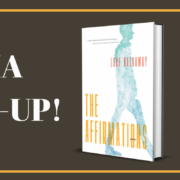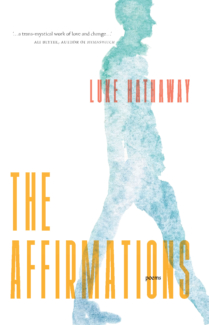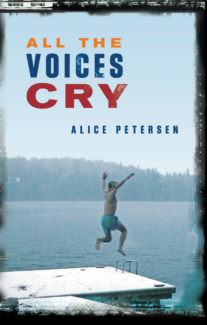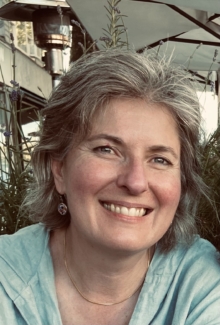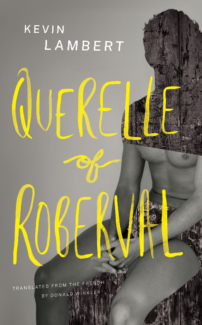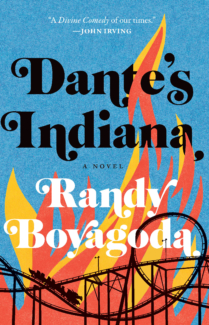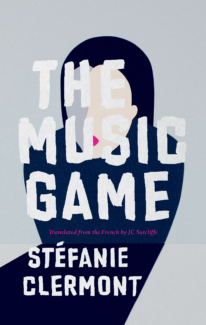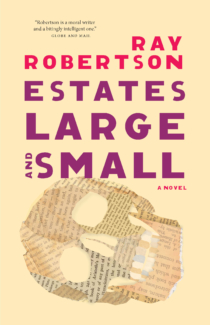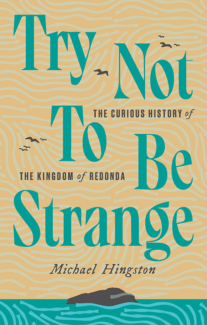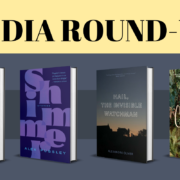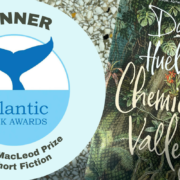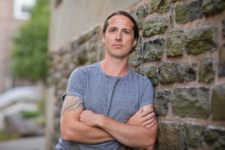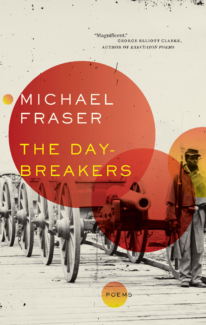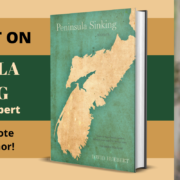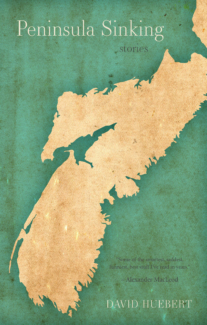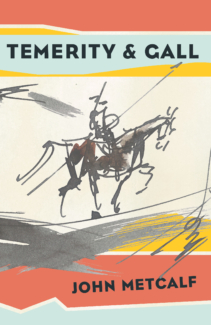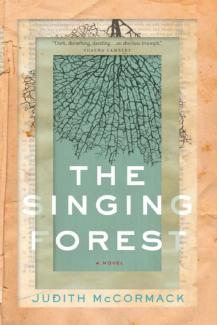IN THE NEWS
POGUEMAHONE
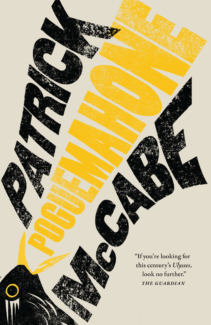
Patrick McCabe was interviewed by Neil Wilson for The Ottawa Writers Festival podcast. In the interview, he reads from and discusses Poguemahone (May 3, 2022). The interview was published online on June 8, 2022. You can listen to the full interview here.
In the interview, McCabe says,
“It is not about the Winter of Discontent […] or English politics or Irish troubles […] but it is really about the secret, mysterious currents that govern everything, that we don’t understand.”
Patrick McCabe was also interviewed by Sam Jordison and Lori Feathers on the Across the Pond podcast. In the interview, he reads from and discusses Poguemahone (May 3, 2022). The episode was published online on June 14, 2022. You can listen to the full episode here.
In the interview, McCabe says,
“Often, when you tear things up, some tiny flicker happens. It could be out of a hundred pages, you get a collocation of words or a combination of sentences and something triggers in you: “Ah, that is what the book is about.” And you don’t quite know, but you start writing again. […] The first draft is trying to find out: what is the stone in your shoe?”
Pick up your copy of Poguemahone here!
A FACTOTUM IN THE BOOK TRADE
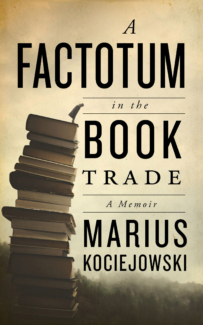
A Factotum in the Book Trade by Marius Kociejowski (April 26, 2022) has been featured in the “Summer Reads 2022: Books About Books” list in Fine Books & Collections Magazine. The list was published online June 8, 2022, and printed in the June edition. You read the full list here.
Rebecca Rego Barry writes,
“Marius Kociejowski’s A Factotum in the Book Trade (Biblioasis, $18.95) is the wistful memoir of a Cecil Court bookseller who both charms readers with anecdotes about Patti Smith and Martin Stone and also wallops them with statements such as ‘the antiquarian book trade is slowly but surely destroying the antiquarian book trade.’ A Canadian who emigrated to London, Kociejowski plumbs his experiences in the English book trade during the eighties and nineties—the major players and massive changes—and reflects on what is slipping away. He writes, ‘I want dirt; I want chaos; I want, above all, mystery. I want to be able to step into a place and have the sense that there I’ll find a book, as yet unknown to me, which to some degree will change my life.’ Agree.”
A Factotum in the Book Trade by Marius Kociejowski has been reviewed by David Moscrop in the Globe and Mail. The review was published online on June 10, 2022. You read the full review here.
Moscrop writes,
“Reading Marius Kociejowski’s A Factotum in the Book Trade is like walking through an endangered species of bookstore … [It] is cranky, obscure, charming, … and illuminating. It reads like a used bookstore smells. … Go open this book and see where it takes you.”
A Factotum in the Book Trade by Marius Kociejowski has also been reviewed by Laurence Worms, of Ash Rare Books, on his blog: The Bookhunter on Safari. The review was published online on June 10, 2022. Check out the full review here.
Worms writes,
“It is enviably and beautifully written, full of memorable flashes of description, bringing characters to life in a phrase … It is unquestionably the best-written account of the modern rare book trade you could hope to find.”
Pick up your copy of A Factotum in the Book Trade here!
SHIMMER
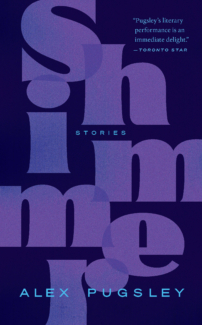
Alex Pugsley, author of Shimmer (May 17, 2022), was interviewed by Junction Reads for their series, ‘The First Thirty’. The interview was posted online on June 9, 2022. You can watch the full conversation here.
Yesterday on June 14, the launch of Shimmer was held in Toronto at the Ballroom in Gladstone House! There were readings, music, and conversation, and we partnered with Flying Books for book sales.
Pick up your copy of Shimmer here!
ON DECLINE
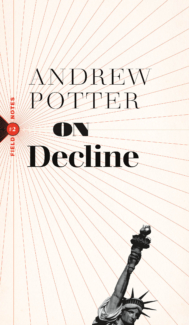
Andrew Potter, author of On Decline (October 2021) was interviewed for CBC Ideas with Nahlah Ayed. The episode was published online on June 7, 2022, and was aired on CBC radio the next evening at 8PM ET. You can listen to the full interview here.
Potter tells Ayed,
“I think climate change is an effect of our civilization, but it becomes a problem when you lose the ability to do anything about it.
The argument in the book is that the real nature of our decline is not an event, it’s a process. That is: what have we lost? We’ve lost the ability to fix the problems we face. And I think climate change is the biggest one.”
Grab your copy of On Decline here!
HAIL, THE INVISIBLE WATCHMAN
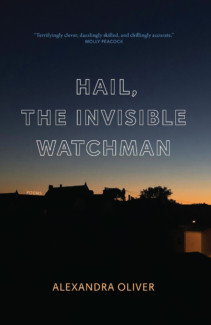
Alexandra Oliver, author of Hail, the Invisible Watchman (April 5, 2022), was interviewed by Tabassum Siddiqui for CBC Books! The interview was published online on June 7, 2022.
An excerpt from the interview:
“Sometimes a line comes to you, so you take that line and then you model the poem around that. Sometimes it’s like a block of marble and you go in and chip into it, and you shape it into something completely different. But I think it allows for musicality and pleasure and some kind of intrigue—in the best case, the reader can feel a vibration.”
You can read the full interview here.
Get your copy of Hail the Invisible Watchman here!
CHEMICAL VALLEY
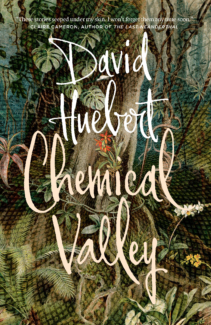
On Thursday, June 9, 2022, it was announced by the Atlantic Book Awards that Chemical Valley by David Huebert (October 19, 2021) won the Alistair MacLeod Prize for Short Fiction! You can watch the full ceremony here, with the Alistair MacLeod Prize presented at 1:03:00.
Here’s what the jury had to say:
“In this courageous collection, David Huebert holds little back as he weaves superbly crafted stories of the dark, difficult, and gritty reality of being human. Whether it be the destructive impact we have on our environment, each other, or ourselves, Huebert tackles this challenge with intelligence and compassion, both in his language and style, and in the empathy with which he portrays the human experience. The intertwining of ugliness, beauty, metallic cold and human warmth, and destruction and hope, creates a visceral, hopeful, and rewarding experience for the reader.”
David Huebert, author of Chemical Valley, was interviewed in an author spotlight on the Writers’ Federation of Nova Scotia website for the Atlantic Book Awards! The spotlight was posted on June 8, 2022.
Huebert told interviewer K.R. Byggdin,
“Oil is the imagistic backdrop of Chemical Valley, but it’s also a book, first and foremost, about struggling people—guilty people, people in crises, hilarious people, people at turning points, sick people, people seeking help. It’s not all doom and gloom, either: there’s joy and love and humour here. I’d like to think everyone can find parts of themself in one or two of these characters.”
You can read the full interview here.
Pick up your copy of Chemical Valley here!

